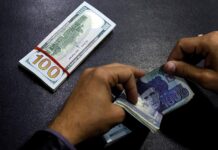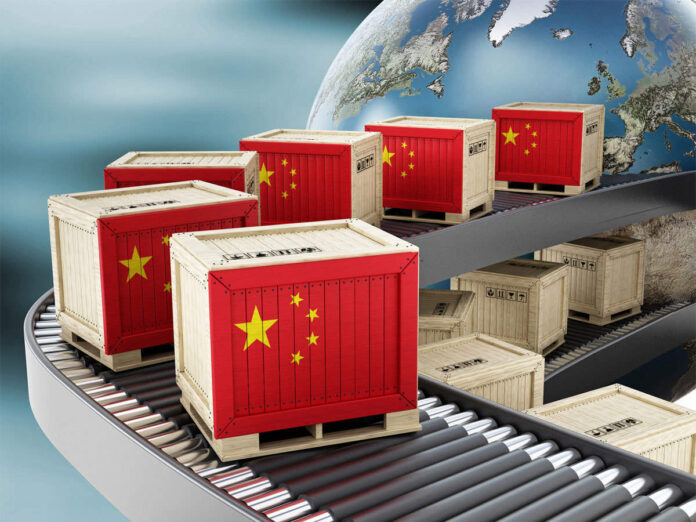Chinese Premier Li Qiang went to the World Economic Forum in Davos last week with a mission to present a positive image of the economy and schmooze financial elites: “Investing in the Chinese market is not a risk, but an opportunity.”
The message fell flat.
As soon as Chinese markets reopened the next day, a years-long sell-off in stocks and other assets accelerated, even as official data confirmed Li’s surprising early reveal that economic growth comfortably hit last year’s target.
“The news was not the data. It was Li Qiang in Davos,” said Alicia Garcia-Herrero, chief economist for Asia Pacific at Natixis. “It was really underwhelming and bewildering. It doesn’t show confidence.”
“To just give a number that everybody was expecting … it’s bewildering. Was there anything else?”
What markets were looking for was a clear roadmap for how China planned to resolve a deepening property crisis and a local government debt crunch, and how it plans to address a debt-fuelling imbalance of low consumption and high investment.
Advertisement · Scroll to continue
The disconnect between the positive official messaging and the concerns that nervous investors and penny-pinching Chinese citizens are raising over the economy is growing.
Analysts warn China’s struggle to get its message across to the broader public fuels uncertainty in the decision-making process at the top and risks eroding market and consumer confidence further.
Alfred Wu, associate professor at Lee Kuan Yew School of Public Policy in Singapore, says one of the root causes is the concentration of power in President Xi Jinping’s third term, which creates hesitation at lower levels in making policy choices, as well as communicating with the public.
“The information flow through the system has become very slow in Xi’s third term. The market started to worry, but no policies came out. And when policies were announced, they were too late,” said Wu.
“As a market player, you have no idea what’s going to happen tomorrow. That’s a scary thing. At the end of the day, it’s confidence – people don’t believe the narrative.”
The Shanghai and Shenzhen stock exchanges have seen $3 trillion of value wiped out since the end of 2021.
Stocks rose slightly on Wednesday after central bank Governor Pan Gongsheng said China will cut the amount of cash that banks must hold as reserves from next month, but questions about the economy’s near- and medium-term growth potential still linger.
“It’s one of the usual tricks the authorities resort to when they want to provide some support,” said Chris Scicluna, head of economic research at Daiwa Capital Markets.
“It’s a welcome step, but it’s not going to be game-changer.”
REPEATED PLEDGES
Investors raised eyebrows over China’s messaging as early as last March, after a speech Li Qiang made at a Chinese business forum where he declared the country “open for business” after years of stringent COVID-19 restrictions.
His words landed as Chinese authorities were raiding U.S. due diligence firms and detaining their staff.
In July, as the post-COVID recovery appeared to be sputtering, China’s leadership pledged to support the economy, raising expectations for policy stimulus.
The readout from a key Communist Party meeting that month removed the oft-cited phrase “houses are for living in, not for speculation,” sparking a rally in the shares of property developers.
Policymakers also promised “a basket of measures” on local government debt. And they flagged their intention to make household demand a key driver of growth.
The measures that have been trickling through since have underwhelmed. Lower mortgage rates and the removal of some curbs on property purchases have failed to boost demand as investors and would-be home buyers worry about debt-laden developers collapsing before finishing housing projects.
Authorities have still not announced a grand plan on how to tackle high levels of municipal debt, which are hobbling the central government’s efforts to boost local economic activity and raising worries about systemic risks to banks.
And there haven’t been any measures to redirect economic resources from infrastructure investment and the manufacturing sector to Chinese households, which have seen their wages fall, and the job market weaken.
“Communicating with markets is useful, but we must have forceful policy steps,” said Xu Hongcai, deputy director of the economic policy commission at the state-backed China Association of Policy Science.
“The market will not be fooled if you only shout empty slogans.”
‘BRIGHT THEORY’
At the end of last year, investors were glued to their screens awaiting highlights from the Party’s annual economic conference and the twice-in-a-decade financial policy meeting.
The first resulted in vague pledges of “policy adjustments,” while the latter flagged plans to step up Party oversight over a $61 trillion financial sector whose asset book is deteriorating due to the property and municipal debt woes.
“After a crisis, you need banks to have animal spirits and to feel like they should lend, so if you crack down on them, it’s going to slow down the recovery,” said Marko Papic, chief strategist at Clocktower Group.
The country’s ministry of state security said in December there was a need to “sing the bright theory of China’s economy” warning of “clichés aimed at denigrating and casting doubt on the system and path of socialism with Chinese characteristics.”
“If you look hard enough every day, there’s something positive in terms of China policy and relaxation of measures or a little bit of stimulus here and there,” said Paul Greer, an emerging debt fund manager at Fidelity.
“It’s almost got to the point where you’ve kind of become desensitised to it.”
Additional reporting by Kevin Yao, Liangping Gao, Ellen Zhang in Beijing and Karin Strohecker and Jorgelina Do Rosario in London; Writing by Marius Zaharia; Editing by Kim Coghill























